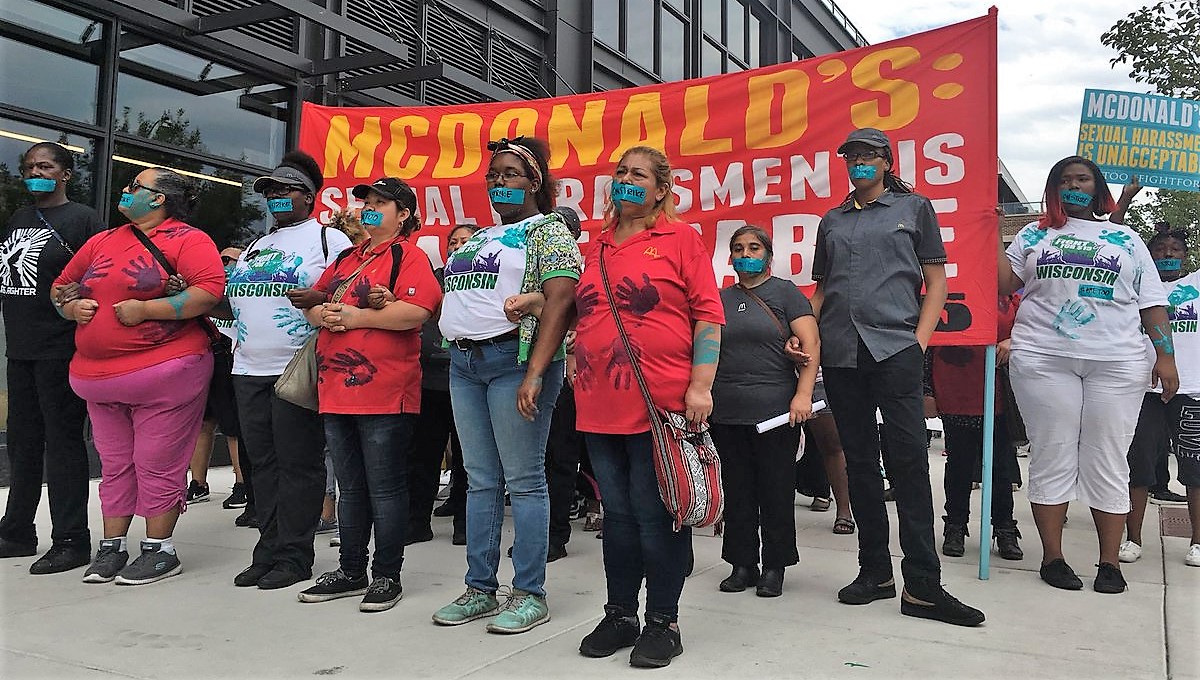
The Duct Tape covering their mouths read “#MeToo,” and “OnStrike.” The workers and their supporters chanted: “Hold the burgers, hold the fries, keep your hands off my thighs,” “We’re here, we’re loud, sexual harassment is not allowed,” and “Respect us, accept us, don’t try to touch us.”
On Sept. 18, workers in 10 cities staged a walkout to draw attention to their struggle with McDonald’s to stop rampant sexual harassment on the job. From St. Louis to Chicago to Durham, North Carolina, to Los Angeles and New Orleans, the workers protested, with three core demands:
- McDonald’s form a national committee with worker, corporate and anti-sexual harassment organizers represented to address sexual harassment,
- McDonald’s strengthen and enforce its zero-tolerance policy,
- McDonald’s hold mandatory trainings for managers and employees and create a safe and effective system for receiving and responding to complaints.
The walkout was organized by women’s committees of McDonald’s workers, with the support of the Fight for 15. The committees include women who filed complaints with the Equal Employment Opportunity Commission in May that document pervasive harassment, a refusal to address that harassment, and retaliation against victims who report harassment. They are frustrated that McDonald’s has done nothing to improve conditions since the complaints.
The McDonald’s workers are not alone. According to a Hart Research Associates survey in 2016, 40 percent of women working in fast-food experienced sexual harassment at work. Forty-two percent of those workers said they felt they had to accept the harassment because of fear of losing their jobs.
Workers across the country report high rates of sexual harassment and the vast majority of them are women. Workers who report sexual harassment are often mistreated and ignored, and sometimes suffer retaliation. An EEOC report noted that one 2003 study found that 75 percent of employees who spoke out against workplace mistreatment faced some form of retaliation.
The #MeToo movement that spread like wildfire last year has created a much more favorable environment for women who speak up. New institutions, like The Time’s Up Legal Defense Fund created this year to support women who report sexual harassment, are supporting women’s struggles across the country. The fund paid for the McDonald’s workers’ legal representation. But, while the movement has broken open new spaces for women to fight for respect and dignity, sexual harassment and violence against women are still utterly pervasive, and systemic.
It is clear that we need to continue this struggle and broaden it, like the McDonald’s workers who are taking action against a mammoth corporation. They are not taking “no” for an answer.






